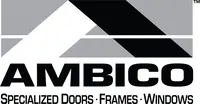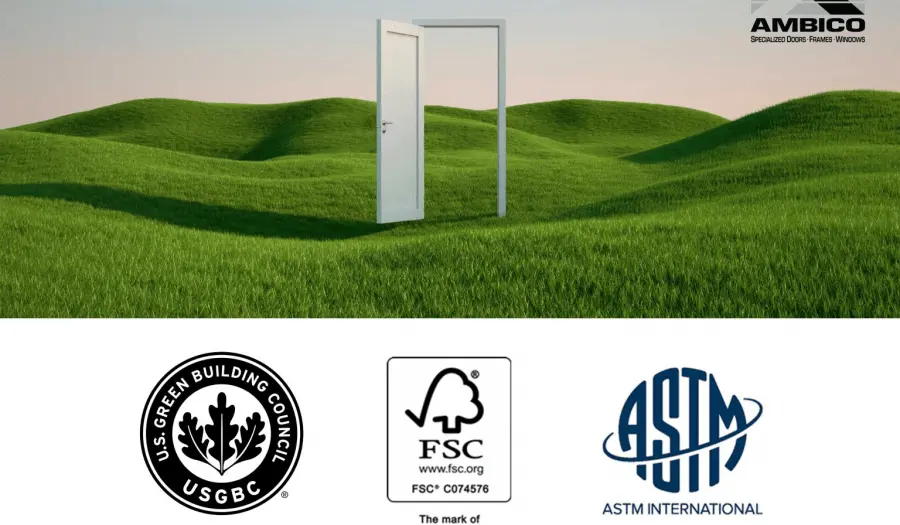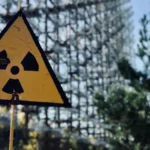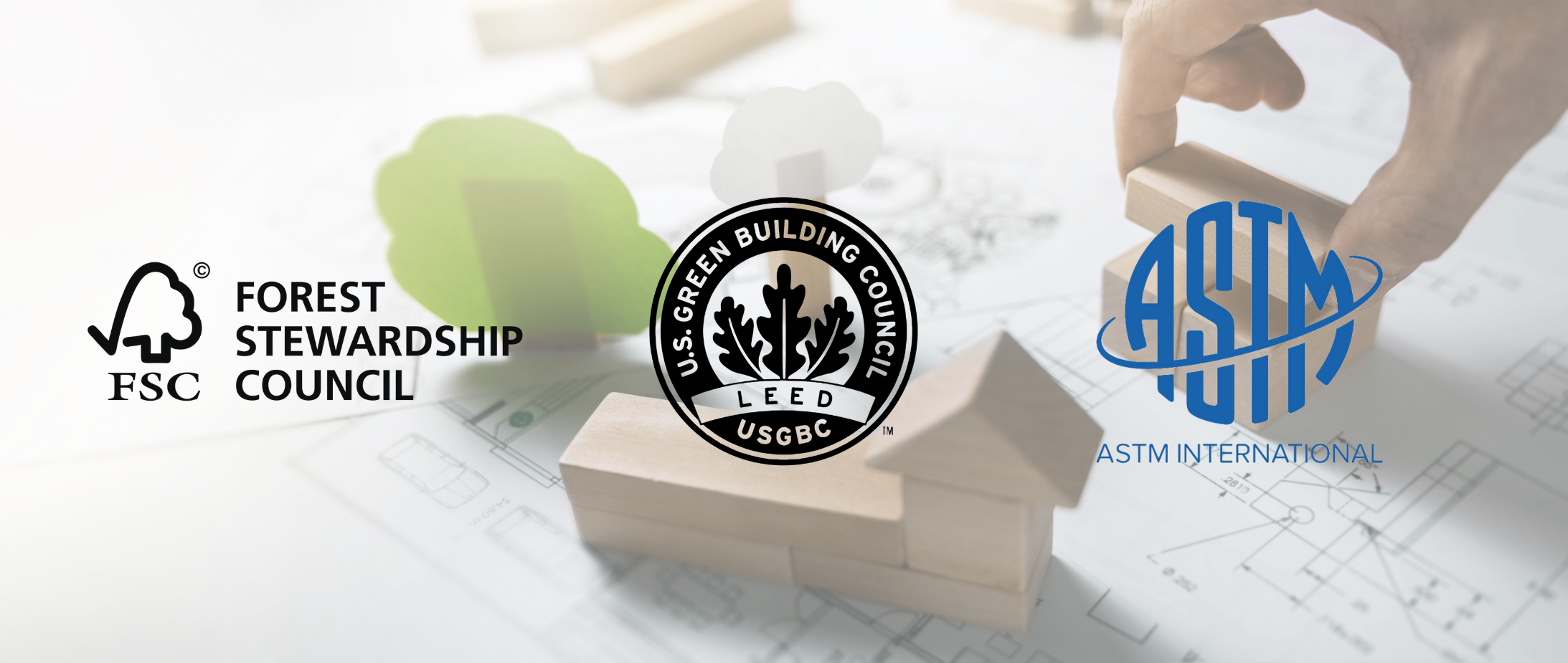
It’s no secret that sustainability and green building will continue to play a huge role in the construction industry’s future. As manufacturers move towards more sustainable products and processes, AMBICO continues to evolve to meet not only the needs of our customers, but the needs of the environment. It’s this dedication and responsibility that has led AMBICO to create sustainable processes and products when manufacturing our specialized doors, frames, and windows. Through contributing to LEED and LEED v4 projects, including Environmental Product Declarations (EPDs), and the Forest Stewardship Council (FSC), AMBICO places sustainability at the forefront of innovation with most of our products, including our most popular products such as our acoustic wood and steel doors, frames, and windows.
FSC

Sustainable construction starts at the beginning of the supply chain. AMBICO’s customers regularly request FSC-COC certified products to meet environmental standards for their projects. When a product is FSC certified, it ensures that the product was sourced from responsibly managed forests as per the FSC Chain of Custody Standard (FSC-STD-50-001 V2-0). This is the crucial first step for AMBICO when maintaining our sustainability efforts. Our wood doors are certified through a third party to verify they meet the rigorous requirements set out in the FSC Chain of Custody Standard. We are proud to offer our customers these FSC certified wood doors.
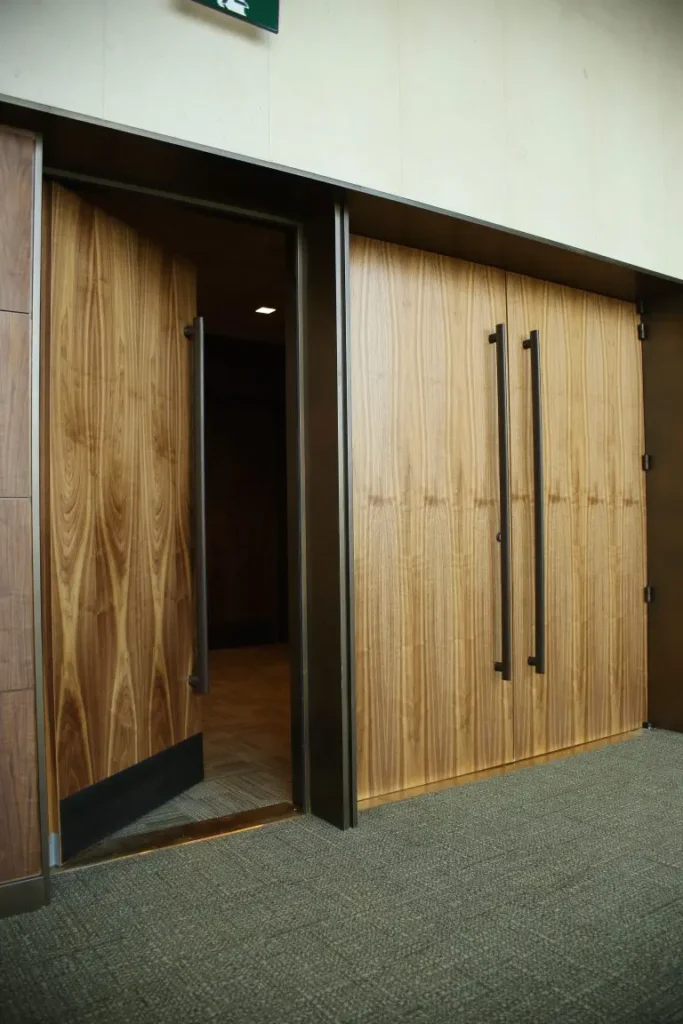
LEED
Another aspect of sustainability in the construction industry is supporting LEED. LEED, or Leadership in Energy and Environmental Design, is a certification program created by the U.S. Green Building Council that sets standards for green building construction. Buildings that meet the requirements set by LEED earn points, which are tallied and can result in certification. LEED certification is recognized worldwide as a mark of sustainability excellence. There are now over 100,000 LEED-certified projects globally, totaling 11 billion gross square feet of space in over 180 countries.
At AMBICO, we have extensive experience providing support for LEED and continue to do so with LEED v4.1. Our engineering team originally began working with customers to meet their requirements on construction projects by producing a Recycled Content Letter, which specified how much recycled content was in our products. In fact, the majority of our products contain a considerable amount of pre-consumer and post-consumer recycled content. Using pre-consumer recycled content in our products means that we are diligent when dealing with waste from our products by reusing them in another product. When we use post-consumer recycled content, it means we have used materials that were already a part of something else, in our product.
LEED V4.1 & EPDs

LEED v.4.1 is the latest generation of LEED that dictates standards for green building design, construction, operations, and performance. With the transition to LEED v4.1 and an introduction to EPDs, AMBICO underwent an extensive audit of our products and processes.
Environmental Product Declarations (EPDs) are documents that provide information about the environmental impacts of products and services across the entire life cycle. They are independently verified and provide information about the material composition, energy use, and emissions associated with a product or service. EPDs are used to inform decision makers about the environmental impacts of purchasing decisions, helping them to make more sustainable choices.
To obtain an EPD, AMBICO had its electricity and water consumption evaluated, created a detailed list of all materials that go into our products, and had our waste and recyclables evaluated with the result of producing an EPD. While an EPD doesn’t give a rating for a product, meaning it doesn’t say if a product is better or worse than others, it does provide a clear and transparent description of the life-cycle environmental impact of the product, which is independently verified by a third-party. By doing this evaluation we can determine how much energy and resources go into creating our products, allowing us to continuously improve the process along the way.
Promoting Sustainable Principles to Architects
Although many of AMBICO’s sustainability initiatives are related to the sourcing and manufacturing of our products, we also play a role in promoting sustainable principles to architects through our AIA certified Acoustic Door Assemblies and Their Role in Sound Control course.
Our Continuing Role in Sustainable Construction
All the initiatives we participate in play a crucial role in green design and sustainability. Revolutionary rating systems such as LEED, transparent and accountable reports like EPDs, and sourcing materials from environmentally sustainable forests might be a small step towards reducing the impact we have on our planet, but at the same time, a giant step towards continuing and promoting green innovation in the specialized door and construction industry.
